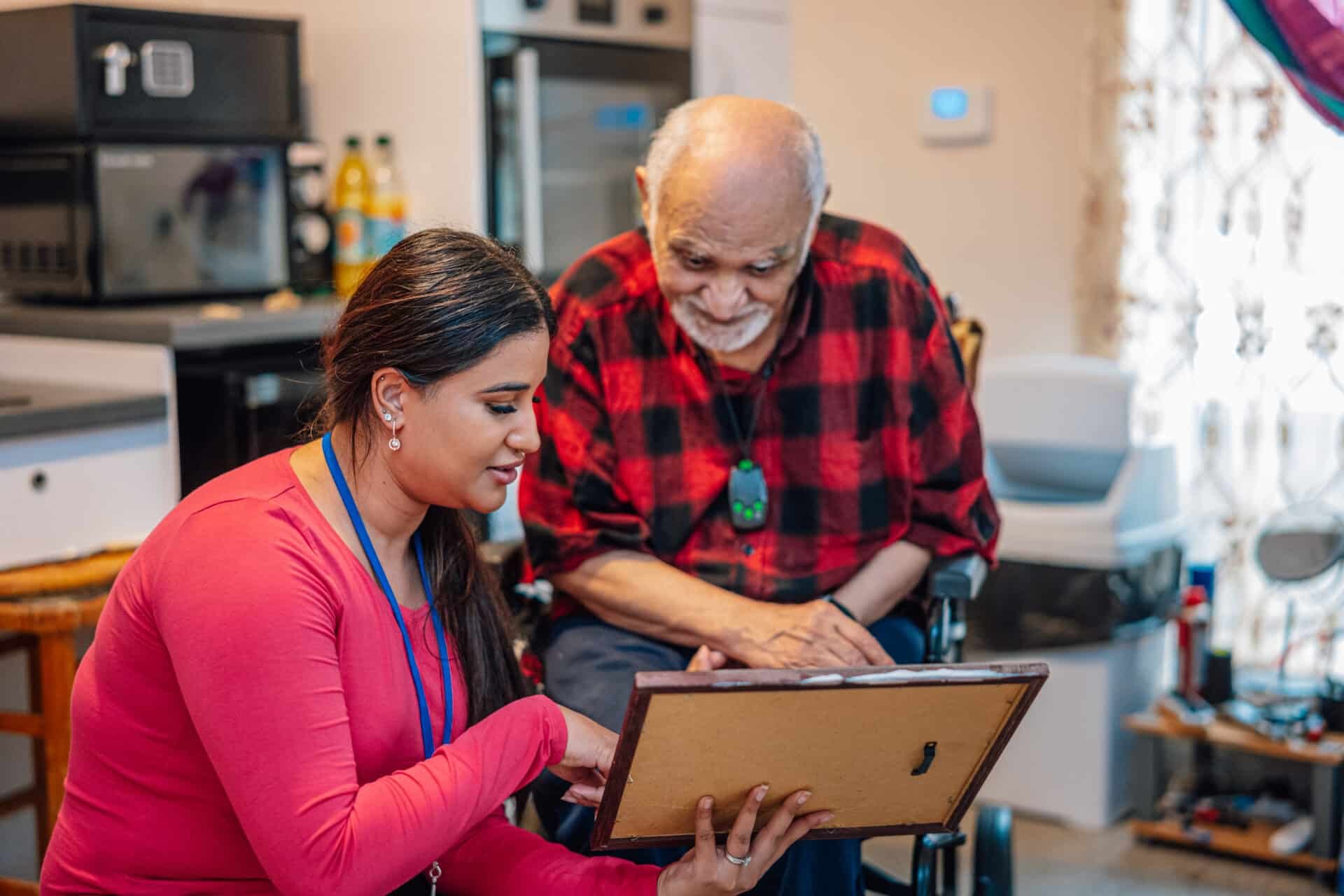What are Acquired Brain Injuries?

Acquired Brain Injuries (ABIs) are complex neurological conditions that result from damage to the brain after birth. These injuries can have a significant impact on an individual’s physical, cognitive, emotional, and behavioural functioning, affecting their ability to perform everyday tasks and participate in activities.
In this article, we’ll explore the causes, symptoms, diagnosis, treatment, and recovery of acquired brain injuries to provide a comprehensive understanding of these often life-altering conditions.
Causes of Acquired Brain Injuries:
Acquired Brain Injuries can occur as a result of various factors, including:
- Traumatic brain injury (TBI): Trauma to the head caused by falls, motor vehicle accidents, sports injuries, assaults, or other traumatic events can lead to brain damage.
- Non-traumatic brain injury: Brain injuries can also occur due to non-traumatic causes such as stroke, brain tumours, infections (e.g., meningitis, encephalitis), lack of oxygen (e.g., cardiac arrest, near-drowning), poisoning, and substance abuse.
- Anoxic brain injury: This type of brain injury occurs when the brain is deprived of oxygen for an extended period, leading to cell death and neurological deficits.
Symptoms of Acquired Brain Injuries:
The symptoms of acquired brain injuries vary depending on the type, severity, and location of the injury but may include:
- Physical symptoms: Headaches, dizziness, nausea, vomiting, fatigue, seizures, sensory changes (e.g., numbness, tingling), and motor impairments (e.g., weakness, paralysis).
- Cognitive symptoms: Memory problems, attention and concentration difficulties, executive function deficits (e.g., planning, organization, problem-solving), language and communication difficulties, and perceptual disturbances.
- Emotional and behavioural symptoms: Mood swings, irritability, depression, anxiety, impulsivity, disinhibition, aggression, and changes in personality and social behaviour.
Diagnosis and Evaluation:
Diagnosing acquired brain injuries involves a comprehensive evaluation by a healthcare professional, including:
- Medical history: Gathering information about the individual’s medical history, including any traumatic events, medical conditions, or previous brain injuries.
- Neurological examination: Assessing cognitive function, motor skills, sensory perception, reflexes, and coordination.
- Imaging studies: Using techniques such as CT scans, MRI scans, and PET scans to visualize brain structures and identify areas of damage or abnormalities.
- Neuropsychological assessment: Conducting standardized tests to evaluate cognitive function, memory, attention, language, and other cognitive abilities.
Treatment and Rehabilitation:
Treatment and rehabilitation strategies for acquired brain injuries aim to address symptoms, maximise function, and promote recovery. Depending on the individual’s needs, treatment options may include:
- Medical interventions: Medications may be prescribed to manage symptoms such as pain, seizures, spasticity, depression, or anxiety.
- Rehabilitation therapy: Physical therapy, occupational therapy, speech therapy, and cognitive rehabilitation can help improve mobility, strength, coordination, communication, and cognitive function.
- Assistive devices: Using assistive devices such as mobility aids, communication devices, adaptive equipment, and environmental modifications to promote independence and enhance daily living activities.
- Psychotherapy and counselling: Individual or group therapy sessions can help individuals cope with emotional and behavioural challenges, adjust to life changes, and develop coping strategies.
Recovery and Prognosis:
The recovery process for acquired brain injuries varies widely depending on factors such as the type, severity, and location of the injury, as well as the individual’s age, overall health, and level of social support. While some individuals may experience significant improvements and regain function over time, others may face long-term disabilities and challenges. Early intervention, comprehensive treatment, and ongoing support are essential for optimizing outcomes and promoting recovery.
Acquired Brain Injuries are complex neurological conditions that can have profound effects on an individual’s life. By understanding the causes, symptoms, diagnosis, treatment, and recovery of ABIs, individuals, families, and healthcare professionals can work together to provide the necessary support, resources, and interventions to help individuals affected by these injuries achieve their highest level of functioning and quality of life. Through a multidisciplinary approach and a commitment to rehabilitation and recovery, individuals with acquired brain injuries can overcome challenges, adapt to life changes, and thrive in their journey towards healing and recovery.
Brain injury support Guildford. Brain injury support Woking.